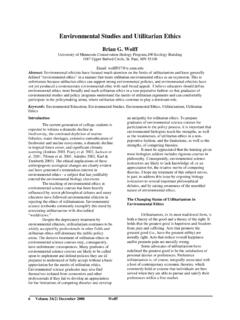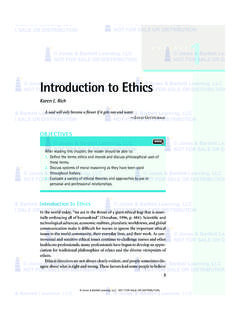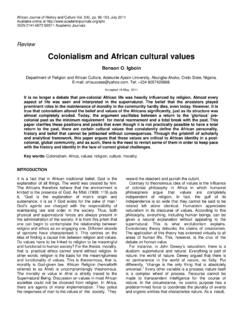Transcription of Dr. Jack D. Kem, Ph.D.
1 Dr. Jack D. Kem, Dr. Jack D. Kem serves as a Supervisory Professor of Joint, Interagency, and Multinational Operations and Teaching Team Leader at the US Army Command and General Staff College, Fort Leavenworth, Kansas. Prior to his current position, Dr. Kem served as the Deputy Commander for NATO Training Mission - Afghanistan (NTM-A) and as the Deputy to the Commander for the Combined Security Transition Command Afghanistan (CSTC-A) in Kabul, Afghanistan. Prior to his deployment to Afghanistan he served in concurrent assignments as the Director, Land Power Studies Institute, the Commandant s Distinguished Chair of Military Innovation, and as a Supervisory Professor of Joint, Interagency, and Multinational Operations at the US Army Command and General Staff College, Fort Leavenworth, Kansas.
2 Dr. Kem entered the US Army in 1974 and retired in 1998 as a Military Intelligence Colonel. He is a graduate of the Air Command and Staff College, the Joint Forces Staff College, and the Army War College. He holds an MPA from Auburn University - Montgomery and a PhD from North Carolina State University. 1 Ethical Decision Making: Using the Ethical Triangle Dr. Jack D. Kem Doing the right thing is good. Doing the right thing for the right reason and with the right goal is better. ADRP 6-22, Army Leadership, para 3-27 Background In May 1968 soldiers of Charlie Company, 11th Infantry Brigade of the Americal Division entered the village of My Lai in Vietnam and within three hours over 500 civilians had been massacred. This horrible memory of the United States Army at war was again remembered in 2004 as the case of the Abu Ghraib prison in Iraq exposed atrocities that were an embarrassment for the military.
3 The war in Iraq also had a number of high profile cases that related to ethical behavior, such as the court-martial for six reservists who had scrounged vehicles to deliver supplies to troops in the field and the scene of a marine reacting to a perceived threat and subsequently killing an unarmed Iraqi prisoner in a mosque in Fallujah. In recent years, misconduct of senior officers has also received notoriety and embarrassment to the military. In all of these cases, the public has had widely different opinions of how to treat the military involved in the incidents. For Lieutenant Calley and those involved in My Lai, many in the public viewed the actions of Charlie Company as understandable because of the nature of the war in 1968 everyone seemed to be the enemy, and the search and destroy missions of that time were based upon intelligence that indicated the enemy was using hamlets such as My Lai for refuge.
4 As a result, the punishment for all of those involved in My Lai was very light or nonexistent; Lieutenant Calley was the only one convicted but he only served three days in prison and was pardoned by President Nixon after serving three and a half years on house arrest. 1 For the cases in Iraq, the reaction was mixed in the public, from widespread support for the Marine in Fallujah and the reservists who scrounged vehicles, to disgust at the Abu Ghraib cases and calls for courts-martial for senior officials. These highly publicized cases admittedly involve only a small portion of the military, but have had an impact on the culture and climate of the military. These ethical issues indicate a need for a closer look at the ethical reasoning and decision making processes of the military.
5 This article will briefly discuss the current doctrinal approach for ethical reasoning in the Army, followed by an alternative approach for ethical decision making. The Army s Current Approach to Ethical Reasoning The United States Army prides itself on being a value-based institution with the admonition in its doctrine to do what is right. In the Army s leadership manual, it states that Leaders draw from deep-rooted values and professional competence to demonstrate resolve to do what is right at the right time for the right reason. 2 The manual continues by stating the Leaders of integrity do the right thing because their character permits nothing less. To instill the Army Values in others, leaders must demonstrate them. 3 The leadership manual continues with 2 the list of values that define character for soldiers using the acronym LDRSHIP: loyalty, duty, respect, selfless service, honor, integrity, and personal The Army s current leadership manual contains a relatively short section on the subject of Ethical Reasoning.
6 The description of Ethical Reasoning starts with the following: To be an ethical leader requires more than knowing the Army Values. Leaders must be able to apply them to find moral solutions to diverse problems. Ethical reasoning must occur during the operations process. Leaders consider ethics in planning, preparing, executing, and assessing Ethical choices may be between right and wrong, shades of gray, or two rights. Some problems center on an issue requiring special consideration of what is most ethical. Leaders use multiple perspectives to think about ethical concerns, applying the following perspectives to determine the most ethical choice. One perspective comes from the view that desirable virtues such as courage, justice, and benevolence define ethical outcomes.
7 A second perspective comes from the set of agreed-upon values or rules, such as the Army Values or Constitutional rights. A third perspective bases the consequences of the decision on whatever produces the greatest good for the greatest number as most Army leaders are expected to do the right things for the right reasons. It is why followers count on their leaders to be more than just technically and tactically proficient. They rely on them to make ethical decisions. Determining what is right and ethical can be The Army s leadership manual continues by stating that ethical reasoning is complex in practice and no formula will work every time. The last paragraph of the Ethical Reasoning section states: Ethical reasoning is complex in practice.
8 If time allows in particularly ill-defined situations, using concepts from the Army Design Methodology (see ADRP 5-0) can help to frame the right problem and consider ethical implications in detail. Resolving ethical problems requires critical thinking based on the Army Values. No formula will work every time. By embracing the Army Values to govern personal actions, developing an understanding of regulations and orders, learning from experiences, and applying ethical reasoning, leaders will be better prepared to face tough Unfortunately, these passages from the Army s leadership manual does not provide a lot of guidance on how to address ethical issues, other than to embrace the Army Values. Although I agree that all Soldiers should embody the Army Values, the term itself is problematic.
9 These traits of loyalty, duty, respect, selfless service, honor, integrity, and personal courage are more properly thought of as virtues. None of the Army Values is more important than the others; all Soldiers are expected to embody all of these traits as part of their character. Values, however, indicate a relative worth or importance we value a quarter more than a dime; a quarter has more value than the dime. In fact, the Army s leadership manual describes the virtues-based approach as an ethical perspective that comes from the view that desirable virtues such as 3 courage, justice, and benevolence define ethical outcomes. 9 We will discuss more about virtues and the virtues-based approach to ethics later. Defining the Ethical Dilemma The Army s leadership manual also states that Ethical choices may be between right and wrong, shades of gray, or two rights.
10 10 Let s look at this in detail. When an ethical choice is between right and wrong, deciding what to do is more of an issue of moral courage to do what is right. If the choice is this clear, it should not pose a problem for leaders of character. Dr. Donald Ducky Mallard (David McCallum) in the CBS television series NCIS, stated that The ethical man knows he shouldn t cheat on his wife, whereas the moral man actually wouldn t. As this clearly shows, ethics is the study of what is right and wrong; morality is concerned with the issue of what should be. 11 Determining what is the ethical or moral thing to do when the choices are between shades of gray or between two rights is much more difficult. This is the case of ethical dilemmas when virtues come into conflict with each other, or when you have to make a choice that either upholds one right virtue or another right virtue.



